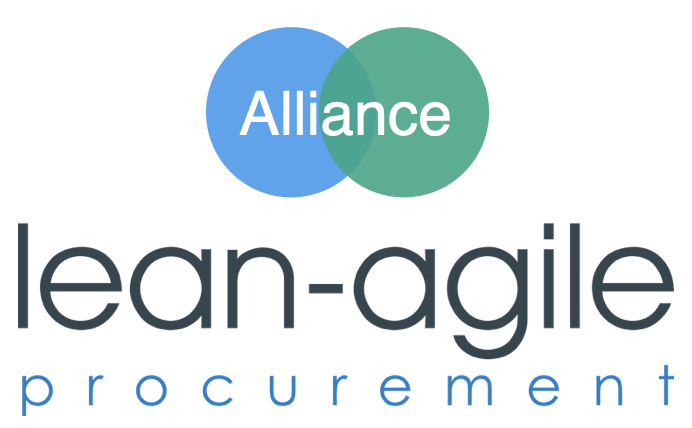
Contract Types
Target Price
Target Price
Contract
Characteristics
Category
Iron Triangle
In a Target Price contract, the scope is defined at a high level by outlining business objectives or targets, allowing flexibility in how these are accomplished. While the time and quality standards are predefined, the cost ceiling is variable and does not necessarily have to be fully utilized, providing an opportunity for cost savings if the targets are met efficiently.
Agile Contract?
Yes, a Target Price Contract can be considered an Agile contract because it offers flexibility in achieving the desired outcomes and current costs. New ideas from either party can be integrated during the delivery process without the need for formal change requests.
A Target-Price Contract is similar to a Fixed Scope & Fixed Price Contract, but rather than a fixed scope, it sets specific targets or outputs and a predefined cost ceiling. This type of contract is ideal for relational relationships, emphasizing the achievement of set goals without detailing the exact methods, solutions, services, or products to be used. It offers flexibility in how the targets are reached, promoting innovation and adaptability. However, it does not guarantee the use of the entire initial budget, allowing for cost savings if the targets are met efficiently.
Buyers Perspective
Example
A Target-based Contract might involve a renewable energy company committing to build 5 solar farms over two years. The contract specifies the target but allows flexibility in how and with what components it is achieved, enabling the company to choose the most effective solutions within set time, cost, and quality constraints. If initial estimations for components are cheaper the vendor cant claim the initial prices.
Also known as
Cost Target Contract, Budget Cap Contract, Target Cost Contract, Cost Ceiling Contract
Vendors Perspective
From the vendor's perspective, a Target Price Contract provides the opportunity to innovate and choose the best methods to meet the project's objectives within a defined budget. The contract allows for potential profitability if the work is completed efficiently under the cost ceiling. However, it also carries the risk of financial loss if the project costs exceed the target price, requiring careful planning and cost management. The flexibility in execution encourages the vendor to optimize processes and resources to achieve the set targets.
From the buyer's perspective, a Target Price Contract offers the advantage of setting a maximum budget, providing financial predictability while allowing flexibility in how project goals are achieved. The buyer benefits from the potential for cost savings if the vendor can deliver the desired outcomes efficiently, with the assurance that costs will not exceed the agreed ceiling. Additionally, this contract type encourages innovation and efficient resource use, as the vendor has an incentive to meet the targets within or below the budget.
Optimal if
A Target Price Contract is optimal when a project requires a fast delivery within a clear cost control and a maximum budget, yet also benefits from flexibility in how the work is completed. This contract type is particularly suitable when innovation and efficiency are encouraged, allowing vendors to determine the best approaches to meet specified outputs within the set financial limits.
Challenges
Scope Definition Ambiguity: Defining high-level targets or objectives can lead to misunderstandings or disagreements about what constitutes successful completion.
Risk of Underestimation: Vendors may underestimate the costs or complexity of achieving the targets, potentially leading to financial losses or project delays.
Incentive for Cost-cutting: Vendors might prioritize cost-cutting to stay under the budget ceiling, which could negatively impact the quality of the deliverables.
Potential for Disputes: Disagreements can arise over whether targets have been met or if the quality standards are sufficient, especially when performance metrics are not clearly defined.
Complex Contract Management: Managing and monitoring the contract can be complex, requiring careful oversight to ensure targets are met within the specified budget and quality parameters.
Vendor's Financial Risk: The vendor bears the financial risk if costs exceed the target price, which can impact their financial stability and willingness to invest in high-quality resources.
Advantages
Cost Control: The buyer benefits from a predefined cost ceiling, ensuring the project does not exceed budget limits.
Flexibility in Execution: Vendors have the freedom to determine the best methods and solutions to achieve project objectives, allowing for innovative and efficient approaches.
Focus on Output: The contract emphasizes achieving specific targets or business objectives, rather than rigid adherence to a detailed scope, enabling adaptability to changing conditions or new information.
Potential for Cost Savings: If the vendor completes the project below the target price, the savings can benefit both parties, either through shared cost reductions or enhanced vendor profit margins.
Encourages Collaboration: The nature of the contract fosters a collaborative relationship between buyer and vendor, as both parties work together to achieve the agreed-upon objectives.
Quality Assurance: While costs are capped, quality standards are predefined, ensuring that the focus on budget control does not compromise the quality of deliverables.


